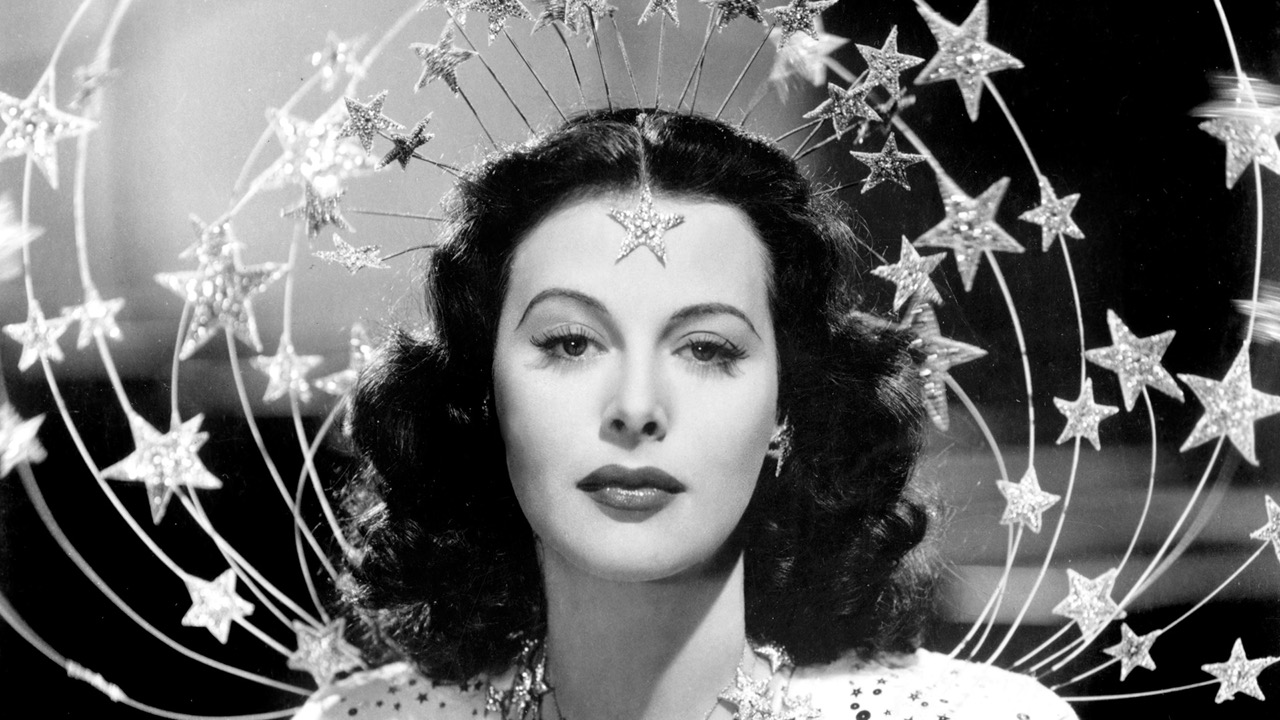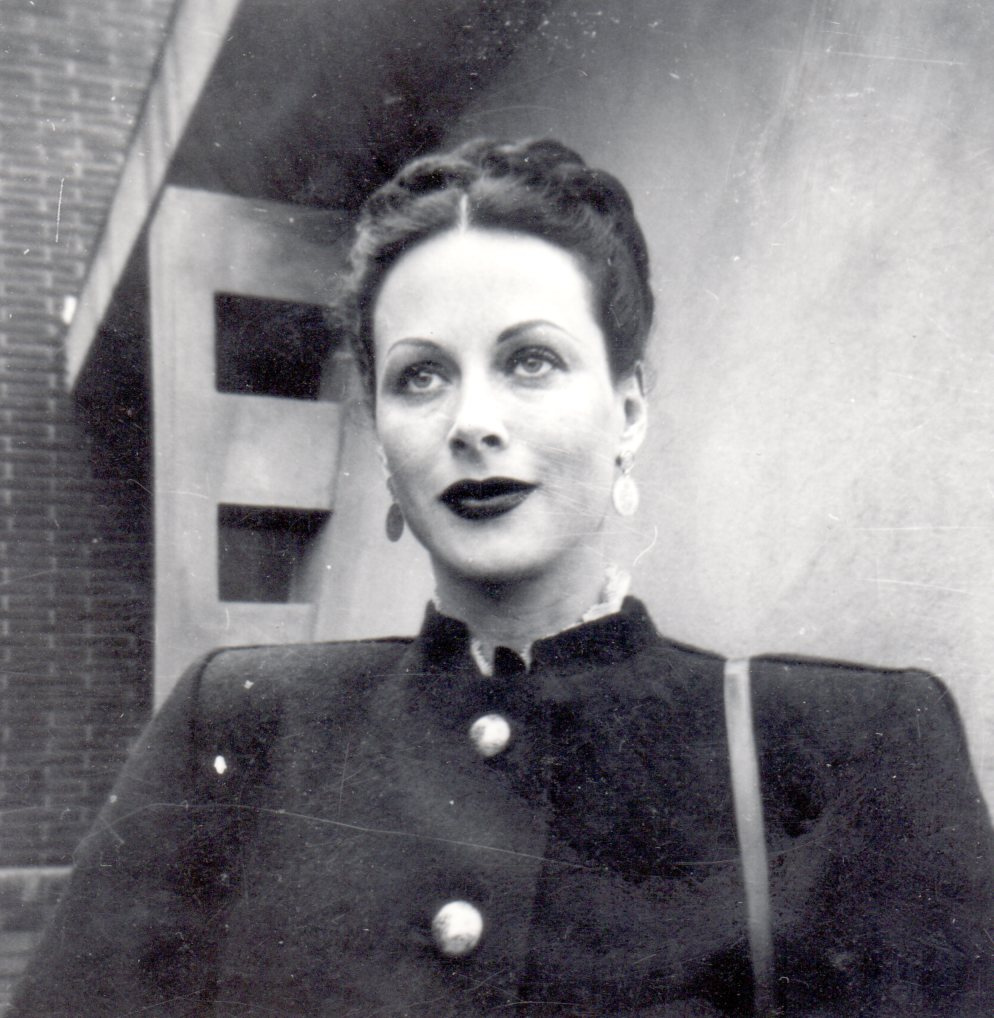Even when the scientific community recognised her as a genius, Austrian-born actress Hedy Lamarr’s contribution to the world was mostly reduced to being either a bombshell or a pun. But though her name may have been a punchline in Mel Brooks’s effluence-ridden comedy western Blazing Saddles, it is Lamar’s concepts around frequency hopping — securely transmitting radio signals — that are now used as the basis for GPS, WiFi and Bluetooth. Whatta woman! After discovering reels of interview tapes with the actress, Alexandra Dean — an Emmy award-winning journalist, documentary maker and producer — enlisted the irrepressible Susan Sarandon as producer for a new documentary about the 1940’s actress and inventor. Here, Alexandra tells i-D how easily Hedy was relegated to role of bombshell, rather than celebrated for being the brilliant and progressive thinker that she was.
There’s no doubt about it, Hedy Lamarr’s story is one to make your blood boil.
I made a film about a brilliant inventor and every time I post about her on Facebook or Twitter, two things happen every single time. First, someone comments that Hedy was “so beautiful”, and second, someone else writes “Hedley!” and posts a meme of Harvey Korman waving his hands about in the film Blazing Saddles.
It has become a Pavlovian response to her name that I know will appear within minutes of the post going live. It is Hedy Lamarr’s eternal curse, and, as the director of a new documentary about Hedy, now it feels like mine.
To be fair, her life was scandalous. Hedy was an Austrian actress who made herself infamous at the age of 17 by simulating an orgasm on screen in the arthouse film Ekstase. [Ecstasy]. On screen! An Orgasm! In 1933! That landed her right into the fantasy lives of more teenage boys than Kim Kardashian’s sex tape, and it can come as no great shock that most of them were much too busy being titillated by her naked bod to give two figs about her intellect.
What is surprising, though, is how long that film marked her as a scandal. That’s partly because an obsessed fan named Mel Brooks grew up to be a famous film director and he named his Blazing Saddles villain “Hedly Lamarr” as a wink to his childhood friends and their imagined love affairs with her. For this film I asked him what the joke was about and if he felt guilty about making her name a punchline — considering she sued him for the offence and they settled out of court. He explained to me that Hedy’s name, evocative of unearthly beauty and illicit nudity, was the most ludicrous one he could think of for a gun-toting sheriff in his spoof of the American West, and that’s what made it so funny… and so unforgettable.
Here’s the kicker though; this actress who inspired all this lust and obsession should have been legendary for something far more serious, and all that joking did was actually obscure a really astonishing fact about Hedy: she secretly invented the foundation for wifi, bluetooth and GPS today. The real Hedy Lamarr was a genius whose work changed our daily lives.
In our film Bombshell Hedy Lamarr finally gets to tell the whole story in her own words. She can do that because one journalist, named Fleming Meeks, tracked her down in 1990 and asked her about her inventions. His father was a rocket scientist who had heard the rumours that Lamarr was an inventor and Meeks, who was one of those teenage boys with a huge crush on Lamarr, decided it was a good reason to call her up. They spoke for hours and he was gobsmacked to hear she’d invented with the famous aviator Howard Hughes. He was confused why she was never paid if she gave the concept of “frequency hopping” to the US Navy. He was a little sceptical as well, and she hung up on him a couple of times but he sent her a bouquet of yellow roses and they began talking again. He lifted a half dozen quotes from the tapes and wrote a small article about the fact that she was never paid for her great invention, which would be worth billions today. The article was the first to get the word out that this actress was far more than “a pretty face”, and Fleming moved on, tucking the tapes into a shoebox for 25 years, until the day I called hunting for them.

Tracking down Fleming Meeks and finding those tapes was the most exhilarating discovery I have ever made. Fleming kindly gave them to me and I had them restored and then carefully reassembled their fractured conversation into a narrative that was one of the most wonderful stories I’d ever heard.
As Bombshell becomes more popular and more people hear her story more, the comments on Facebook have started to change… ever so slightly. But when will our astonishment at the magnitude of her achievement overtake our childish snickering about Hedley in Blazing Saddles? Or (and I suppose this is what really bothers me about the persistence of the Hedley jokes) is it that we really never forgive women who are perceived to make mistakes in the public eye? Women who dare to express their sexuality.
In truth Hedy became a punchline for reasons bigger than Blazing Saddles. By the time she was in her forties she’d become angry and bitter about Hollywood. She was sad that the films she produced were not taken seriously. Bitter that no one ever acknowledged her for giving her seminal invention to the United States Military during WW2. Desperate for the world to understand her as more than a sex pot or a scandal. She authorized a tell-all book about her life that was full of details about her bisexuality, multiple husbands and drug use. She recorded her confessions on tapes and sent them to a ghostwriter hoping for a multidimensional portrait to emerge that would explode people’s notions about her. In a devastating twist the ghostwriter left out her inventions and her intellectual brilliance and focused only, once again, on the scandals. People were titillated by her book, they were mildly scandalised. They learned nothing new about Hedy Lamarr.
The truth is, all this ridicule of Hedy hits a nerve. I’m a female director working in an industry where the top jobs are still overwhelmingly occupied by men. Only 7 percent of top-grossing filmmakers are women. But here’s what’s really shocking: of that tiny number only 20 percent ever get to direct again. Why? Because it seems female directors aren’t given the opportunity to direct very often and when they are, they aren’t allowed to make mistakes. That’s a problem, because very few of us are born great, most of us get there through a painful journey of trial and error. More than that, we want to make stories that push the envelope, and stories about women that have never been told that way before. Box Office numbers from Wonder Women and Lady Bird show that moviegoers really want to see this work, but we also need funders and studios and distributors to support us as we reach for better and better ways to tell our stories. I’m immensely grateful for being given the opportunity to make Bombshell and even more grateful that the film is doing well (in large part because of support from visionary funders like The Sloan Foundation). But my eyes are on the horizon and I want a fair shot to make many more films, both for me and my fellow female filmmakers who are pushing ever more boundaries as I write this.
Towards Hedy Lamarr’s later years she became convinced the world was never going to understand her, and she spent a lot of time alone thinking about her life and how she was never recognised. She became very fond of a poem by Kent. M Keith called The Paradoxical Commandments that encapsulated her feelings about being overlooked. The poem basically says, you may feel kicked in the teeth and your greatest achievements may never been recognised, but do the work anyway… because it’s in the doing that we find the meaning of our lives. That was Hedy’s solace before she died. She’d done something truly great, whether she got applause for it or not. And I guess it’s also ours. We’re fighting for a better world, and as long as we get the chance to do the work, we will find all the meaning we need.
Bombshell: The Hedi Lamarr Story is out tomorrow
Editor’s note this piece has been amended to correct the spelling of Ekstase.
